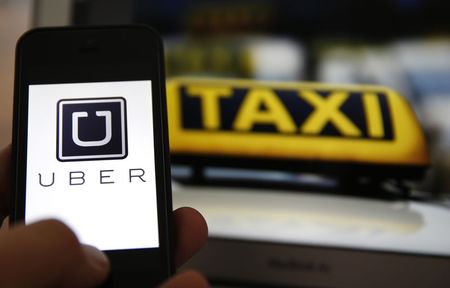FRANKFURT (Reuters) - Courts in Berlin and Hamburg upheld bans on online transportation service Uber on Friday, saying the company did not comply with German laws on the carriage of passengers.
U.S. start-up Uber had appealed against the bans in Germany, the latest front in its global battle to win regulatory approval in the face of stiff opposition from taxi services under threat from Uber's business model.
Uber said it had not yet decided whether to appeal against Friday's rulings by administrative courts in Berlin and Hamburg, which said Uber's drivers lacked the commercial licences to charge passengers for rides.
"Uber is reviewing the court documents in detail before commenting on today's decision but will continue to comply with German law," said a spokesman for Uber, which was recently valued at $18 billion (11.03 billion pounds).
He declined to say whether Uber would continue to operate services in the two cities pending any appeal.
Uber has been shadowed by skirmishes with taxi operators and local authorities in many cities where it operates, starting in its home base of San Francisco. It is active in 43 countries and has pulled out of only one city: Vancouver, Canada.
The Berlin and Hamburg rulings go against a previous reprieve given to Uber by a Frankfurt court, which ruled last week there were no grounds for a temporary injunction against its services.
The disparate decisions underline ambivalence in Germany about how to deal with challenges from U.S. technology firms ranging from Google to Amazon to Uber.
The German Economy Ministry said last week the country needed to make room for new, digital business models alongside existing businesses, and called for a hard look at laws governing transport and competition.
The Berlin court said on Friday there was no way of telling whether private drivers using the UberPop mobile phone app, which connects them to potential passengers, were fit to take on the special responsibility of carrying passengers.
It said the Uber Black service, which allows users to summon limousines using an app, did not meet the legal requirement for taxis to return to their service centre and so fell between regulations for taxi and rental car services.
"The ban serves to protect the existence of taxi services, their ability to function, in which there is an important public interest," it said in a statement.

The Hamburg court rejected Uber's arguments that the ban violated Uber's professional freedom or European freedom to offer services.
(Reporting by Georgina Prodhan and Harro ten Wolde; editing by David Clarke)
4_800x533_L_1412522645.jpg)